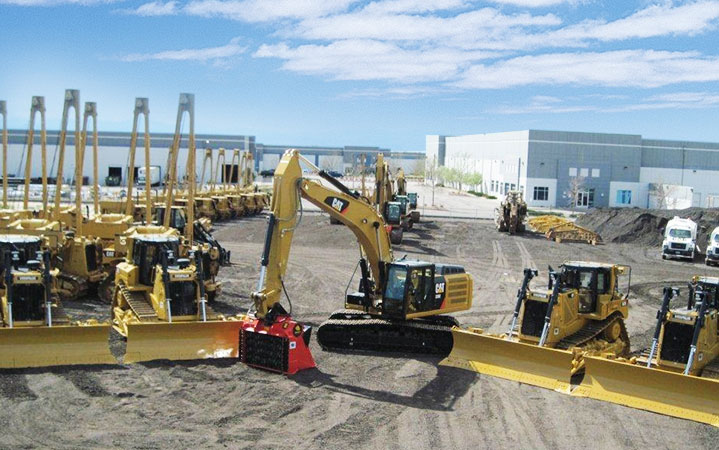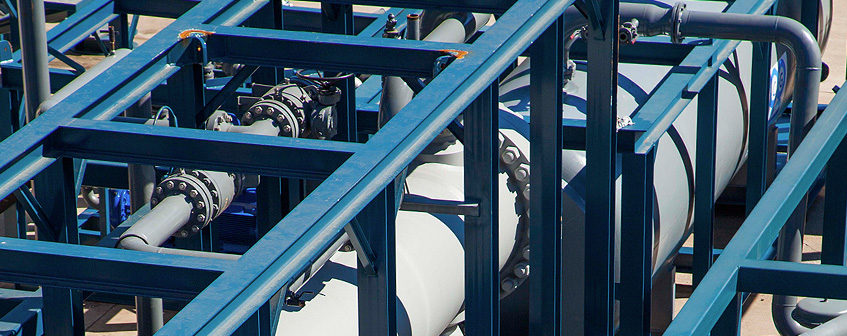Superior Oilfield Rentals: budget benefits explained clearly
Wiki Article
A Comprehensive Guide to the Numerous Sorts Of Oil Field Equipment and Pipeline Equipment Available
The oil and gas industry depends heavily on specialized equipment for effective removal and transport. Various kinds of machinery, from piercing rigs to tank, play important roles in this intricate procedure. Each tool offers unique functions that add to total operational success. Recognizing these parts is crucial for anybody included in the market. As the industry evolves, so as well do the innovations that sustain it. What developments are on the perspective?
Drilling Rigs: The Foundation of Oil Exploration
Drilling rigs function as the crucial machinery in the domain name of oil expedition, enabling firms to gain access to hydrocarbon books hidden deep under the Earth's surface. These rigs can be found in various types, including land rigs, offshore rigs, and mobile systems, each designed to operate in details settings. Furnished with advanced modern technology, drilling rigs can pass through geological formations with accuracy, making certain effective source removal. The structural honesty and operational abilities of these rigs are crucial, as they need to withstand extreme conditions and significant stress. In addition, the choice of a boring gear influences the total project price and timeline, making it an essential factor to consider for oil firms seeking to enhance their exploration efforts and take full advantage of performance in their procedures.Pumps: Essential for Fluid Movement
In the oil extraction procedure, the duty of pumps is substantial, promoting the activity of liquids throughout numerous phases of production. Pumps are vital for carrying petroleum, water, and various other fluids from below ground storage tanks to the surface and after that through pipelines to refineries. They can be found in numerous types, including centrifugal, positive displacement, and submersible pumps, each serving particular functions based upon the liquid attributes and functional demands. Centrifugal pumps are frequently utilized for their effectiveness in high-flow applications, while favorable variation pumps master managing thick liquids. The selection of pump effects general effectiveness, operational security, and maintenance expenses. Correct selection and maintenance of pumps are vital for optimizing production and minimizing downtime in oil area operations.Valves: Controlling Circulation and Pressure

Shutoffs play an important role in managing the circulation and stress of fluids within oil areas and pipelines. Various kinds of shutoffs offer unique applications, each made to accomplish particular functions essential for effective procedure - Superior Rentals reviews. Recognizing the characteristics and usages of these valves is necessary for maximizing system efficiency and safety
Kinds of Valves
Crucial elements in oil field operations, valves play an essential function in regulating the flow and stress of liquids within pipelines and equipment. Various kinds of valves are used to satisfy the diverse needs of oil and gas production. Common types consist of gateway shutoffs, which supply a straight-line circulation and very little pressure drop; globe shutoffs, recognized for their strangling capabilities; and ball shutoffs, identified for their fast on/off control. Furthermore, check valves prevent heartburn, while butterfly shutoffs provide a lightweight solution for regulating circulation. Each valve kind is created with certain materials and configurations to withstand the rough problems typically discovered in oil fields, ensuring integrity and effectiveness in operations. Recognizing these types is crucial for effective system administration.Valve Applications and Features
While different sorts of valves offer distinctive objectives, their key applications revolve around controlling circulation and stress within oil and gas systems. Shutoffs such as gateway, world, and sphere valves regulate liquid motion, guaranteeing peak performance and safety and security. Gateway valves are typically used for on/off control, offering very little flow resistance. World shutoffs, on the other hand, offer specific circulation regulation, making them ideal for strangling applications. Sphere valves are preferred for their quick procedure and tight securing capacities. Additionally, stress relief shutoffs are important for avoiding system overpressure, guarding devices honesty. In general, the ideal selection and application of shutoffs improve operational effectiveness, ensuring the dependable transport of oil and gas through pipes and processing centers.Compressors: Enhancing Gas Transport
Compressors play a vital role in the reliable transport of all-natural gas, guaranteeing that it relocates smoothly via pipelines over lengthy distances. These tools enhance the stress of gas, enabling it to overcome friction and altitude modifications within the pipeline system. Additionally, compressors assist in the balancing of supply and need, accommodating changes in consumption and production rates. Different types of compressors are utilized in the industry, consisting of centrifugal, reciprocating, and rotating screw compressors, each offering distinct benefits based upon the functional requirements. Routine upkeep of these compressors is important to maximize effectiveness and reduce downtime, inevitably contributing to a reliable gas transportation network. Their critical function emphasizes the relevance of compressors in the total oil and gas framework.Storage Tanks: Safe and Effective Fluid Administration
Efficient transportation of gas relies upon various support group, among which is the get more info appropriate management of storage space containers. These tanks play an important role in securely consisting of fluids, ensuring that functional effectiveness is maintained while minimizing ecological dangers. Constructed from durable materials, they are designed to hold up against high stress and destructive components. Effectively sized and tactically located, tank facilitate the smooth circulation of gas and other liquids, protecting against traffic jams in supply chains. Normal maintenance and tracking are essential to find leakages or structural concerns, promoting safety and compliance with regulatory requirements. Inevitably, the efficient monitoring of storage containers is vital for the total integrity and integrity of the oil and gas industry's liquid handling systems.
Pipeline Equipments: Facilities for Transportation
Pipeline systems work as the backbone of the oil and gas industry, promoting the efficient transport of hydrocarbons over substantial distances. These systems consist of numerous components, including pipes, shutoffs, pumps, and compressors, all meticulously developed to assure seamless circulation. The materials used in pipeline building and construction, commonly steel or high-density polyethylene, are selected for durability and resistance to deterioration. Pipeline networks can span throughout land and water, connecting manufacturing websites to refineries and distribution. In addition, advanced modern technology enables real-time tracking of flow rates and pressure degrees, boosting functional performance. The strategic placement of these pipelines reduces environmental effect while taking full advantage of resource availability, therefore playing an essential role in meeting energy needs globally.Safety And Security Equipment: Ensuring Worker and Environmental Management
The procedure of pipeline systems, while crucial for energy transport, also presents considerable safety difficulties for workers and the environment. Safety tools plays a substantial function in reducing these risks. Personal safety devices (PPE) such as helmets, gloves, and non-slip shoes safeguards workers from physical dangers. Furthermore, gas discovery systems check for leaks, guaranteeing that hazardous substances do not position a danger to personnel or the bordering environment. Emergency situation closure systems are important for quickly halting operations throughout a situation, protecting against prospective catastrophes. Spill containment products, including absorbents and obstacles, are fundamental for decreasing environmental influence. On the whole, investing in all-inclusive security equipment is important for maintaining operational stability and securing both employees and the environment in the oil and gas field.
Regularly Asked Inquiries
Just how Do I Pick the Right Oil Field Equipment for My Job?
Choosing the right oil field equipment entails evaluating task specs, budget constraints, and operational demands. Think about variables such as tools dependability, compatibility with existing systems, and the vendor's credibility to ensure peak performance and safety and security.What Are the Upkeep Demands for Oil Field Equipment?
Maintenance needs for oil area devices include normal assessments, lubrication, and prompt repair work. Operators ought to also abide by producer guidelines, display performance metrics, and guarantee conformity with safety laws to improve longevity and performance.
Just How Can I Ensure Compliance With Environmental Laws?
To ensure conformity with ecological laws, companies must conduct routine audits, carry out finest techniques, purchase training, keep correct documents, and remain upgraded on regulation (Superior rentals squeeze tools). Cooperation with environmental firms can also improve adherence to regulationsWhat Is the Typical Lifespan of Pipeline Equipment?
The typical life-span of pipeline equipment commonly ranges from 20 to half a century, relying on elements such as worldly quality, ecological conditions, and upkeep practices. Routine examinations can considerably affect longevity and operational performance.How Do I Safely Move Oil Field Equipment to Remote Locations?
Transferring oil area tools to remote locations requires cautious preparation, including course assessment, securing authorizations, making use of suitable vehicles, and making certain security protocols are adhered to. Appropriate training and interaction among crews are crucial for successful transport.Report this wiki page